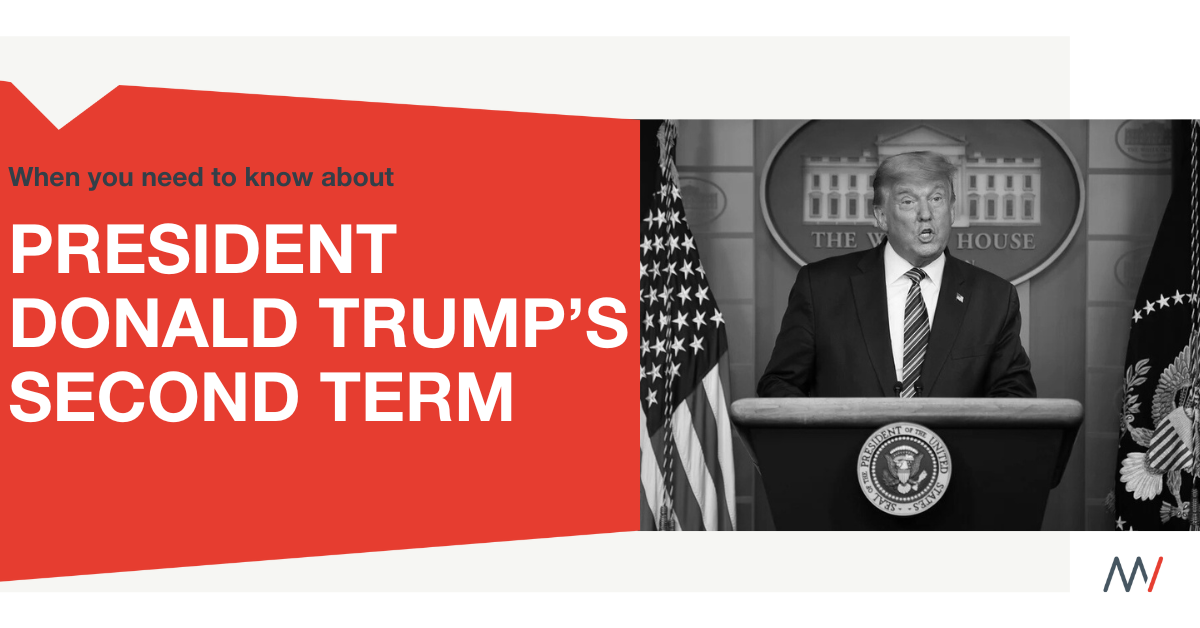So, what does this mean for Canada and for the Canadian economy?
Donald Trump’s historic victory could hardly have been more decisive. The Republican Party almost certainly won the popular vote for the first time since 2004. It will control the Senate and likely the House of Representatives. Trump is the first convicted felon to win the White House and only the second president to win re-election after being defeated for a second term. (Grover Cleveland won in 1884, lost in 1888 and won in 1892.)
Global leaders have been quick with their congratulations. Iceland, India, Indonesia, Ireland, Israel and Italy lead the parade of countries just under the letter I. Iran, a different kind of I-lister, has done what adversaries do: acknowledge the outcome while underling that relations between nations are about interests, not individuals. The response of China and Russia has been roughly the same. But leaders know that relations are about both, especially given Trump’s impulsivity and zero-sum mentality.
Perhaps no country has more at stake than Canada. No major Western country is as dependent on a neighbour as Canada is on the United States. Our trade and investment ties are deep and broad and asymmetrical – not asymmetrical in the sense that one country exports more than it imports but asymmetrical in the sense that the economic relationship impacts about 40 per cent of our GDP but only about 4 per cent of theirs. Canada is even shrinking comparatively: Canadian GDP was equal to Texas 20 years ago, now Texas is about 20 per cent bigger.
So, what now?
A relationship like this requires deep strategic thinking, not just the kind of tactics that suffice elsewhere. And, in a post, post-Cold War era of renewed geopolitical competition, there is no divide between geopolitics and geoeconomics. Our leaders and officials know this. It may be inconvenient, or even ironic, that Canada is being drawn further into the U.S. orbit just as the United States is as divided and unstable as it has been since the U.S. Civil War. But this is Canada’s reality and – though leaders do matter – would have been our reality with a Democratic Party victory too.
Point 1 is that Washington wants more of Canada beyond bilateral relations. Indeed, this is the best way to smooth bilateral ties. But the kind of help Washington wants will spark hard decisions in Ottawa on defence spending. Canada is a laggard within NATO. We have pledged to make up for lost time, and in the region of U.S. focus for Canada – the Arctic. But Trump probably will be even less patient with our tribulations than he was in his first term, or that President Joe Biden has been.
Point 2 is that Canada has more to contribute to bilateral ties but, here too, this will take some doing. Global competition, especially given China’s remarkable rise, is about resources and technology as much as military spending, which now is mostly technology-focused anyway. Canada can do much more with the United States in terms of critical mineral development, particularly given China’s control of a long list of critical minerals fundamental to economic growth, including green growth. But Canada needs to bring its resources to market much faster. Trump won’t wait.
Point 3 is that the 2026 review of the USMCA, negotiated and signed by Trump as the successor agreement to NAFTA, will roil relations further. (In the meantime, Trump will threaten trading partners with tariffs, though he may act only against those who put higher tariffs on U.S. goods now than the United States does on theirs – which would exempt Canada.)
In typical Trump style, he considered NAFTA the worst deal ever and the USMCA the best, although they aren’t all that different. What was different was that he did the second one. But the USMCA review will give Washington another chance to attack Ottawa over our protectionist dairy market system and our recent tax on America social media giants, among irritants.
When we negotiated NAFTA 30 years ago, this was all that mattered in terms of the bilateral relationship. Now, there’s also points 1 and 2. The bad news is that this makes for a bigger challenge than ever for Canada. The good news is that they all interrelate beautifully – do well on one and it helps speed the others.
Many countries talk about having a “special relationship” with the United States. Canada actually once had one. In the years after the Second World War, American global dominance gave it an extraordinary fidelity toward Canada. Those days are long gone. Now, we’re mostly just like the rest. Canada will grapple with Trump Redux. We can even profit from it. But we’re going to have to put on our running shoes to do so.
“McMillan Vantage is here to help you navigate your biggest cross-border issues during the Trump administration. Contact us at info@mcmillanvantage.com.
